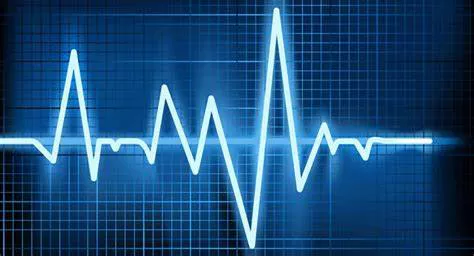Arrhythmias, or irregular heartbeats, can be a source of significant concern for many individuals. While some arrhythmias are benign, others can pose serious health risks. Understanding the nature of your arrhythmia and recognizing the signs that indicate a potentially dangerous condition are crucial steps in managing your heart health. This article will explore the different types of arrhythmias, their symptoms, risk factors, diagnostic methods, and when to seek medical attention.
Types of Arrhythmias
Arrhythmias can be broadly classified into several types based on their origin within the heart and the speed of the heartbeat they cause. The primary types include:
Atrial Fibrillation (AFib)
This is a common type of arrhythmia characterized by rapid and irregular beating of the atria. It increases the risk of stroke and heart failure.
SEE ALSO: Can Arrhythmia Cause Low Oxygen Levels?
Atrial Flutter
Similar to AFib, atrial flutter involves a rapid but regular rhythm. It can also lead to complications such as stroke.
Supraventricular Tachycardia (SVT)
SVT encompasses several types of arrhythmias that originate above the ventricles, leading to rapid heartbeats. Episodes can start and end suddenly.
Ventricular Tachycardia (VT)
VT is a serious condition where the ventricles beat rapidly. It can lead to ventricular fibrillation, a life-threatening condition.
Ventricular Fibrillation (VFib)
VFib involves disorganized electrical signals in the ventricles, causing the heart to quiver instead of pumping blood. Immediate medical intervention is necessary.
Bradycardia
This condition is characterized by a slow heart rate, which can lead to insufficient blood flow to the body and cause various symptoms.
Rick Factors
Several factors can increase the likelihood of developing arrhythmias.
These include:
Heart Disease: Conditions like coronary artery disease, heart failure, and cardiomyopathy can predispose individuals to arrhythmias.
High Blood Pressure: Hypertension can cause the heart to enlarge and become more prone to arrhythmias.
Thyroid Issues: Both hyperthyroidism and hypothyroidism can affect heart rhythm.
Electrolyte Imbalances: Imbalances in electrolytes such as potassium, sodium, calcium, and magnesium can trigger arrhythmias.
Substance Use: Excessive consumption of caffeine, alcohol, and certain drugs can lead to arrhythmias.
Medications: Some medications, including those used to treat other heart conditions, can cause arrhythmias as a side effect.
Age: The risk of arrhythmias increases with age.
Genetics: Family history of arrhythmias or other heart conditions can be a risk factor.
Diagnostic Methods
Diagnosing arrhythmias involves a combination of medical history, physical examination, and various diagnostic tests. Key diagnostic methods include:
Electrocardiogram (ECG or EKG): This test records the electrical activity of the heart and can detect irregularities in heart rhythm.
Holter Monitor: A portable device worn for 24-48 hours to continuously record the heart’s activity.
Event Monitor: Similar to a Holter monitor but used for longer periods to capture arrhythmias that occur infrequently.
Echocardiogram: An ultrasound of the heart that provides images of its structure and function.
Stress Test: Evaluates how the heart performs under physical stress.
Electrophysiological Study (EPS): Involves threading catheters into the heart to map its electrical activity and pinpoint the source of arrhythmias.
Implantable Loop Recorder: A device implanted under the skin to continuously monitor heart rhythm for an extended period.
How Do I Know If My Arrhythmia Is Dangerous?
Determining whether an arrhythmia is dangerous involves assessing several factors, including the type of arrhythmia, its duration, frequency, underlying heart conditions, and associated symptoms. Here are some indicators that an arrhythmia might be dangerous:
Sustained Ventricular Tachycardia or Ventricular Fibrillation: These conditions can lead to cardiac arrest and require immediate medical attention.
Symptomatic Bradycardia: If a slow heart rate causes dizziness, fainting, or shortness of breath, it may indicate a serious problem.
Atrial Fibrillation with Rapid Heart Rate: Uncontrolled AFib can lead to stroke, heart failure, and other complications.
Palpitations with Chest Pain or Discomfort: This could indicate a heart attack or other severe heart condition.
Sudden Onset of Severe Symptoms: Any sudden and severe symptoms like fainting, chest pain, or shortness of breath warrant immediate medical evaluation.
Management And Treatment
Treatment of arrhythmias depends on the type and severity of the condition. Options include:
Medications: Antiarrhythmic drugs, beta-blockers, calcium channel blockers, and anticoagulants may be prescribed to control heart rate, rhythm, and prevent stroke.
Lifestyle Changes: Managing risk factors such as hypertension, obesity, and diabetes through diet, exercise, and avoiding triggers like caffeine and alcohol.
Procedures: Catheter ablation, cardioversion, and implantation of devices like pacemakers or implantable cardioverter-defibrillators (ICDs) may be necessary for more severe cases.
Surgery: In some cases, surgical interventions like maze surgery may be recommended.
When to Seek Medical Attention
It is crucial to seek medical attention if you experience any of the following:
Persistent or severe symptoms: Palpitations, chest pain, shortness of breath, or fainting that doesn’t resolve quickly.
Symptoms with underlying heart disease: If you have a known heart condition and develop new or worsening arrhythmia symptoms.
Unexplained fainting: Any episode of fainting should be evaluated, especially if accompanied by palpitations or chest pain.
Signs of stroke: Sudden weakness, difficulty speaking, or facial drooping, which could indicate a stroke, often associated with AFib.
Conclusion
Understanding whether your arrhythmia is dangerous involves recognizing the symptoms, knowing the risk factors, and seeking appropriate medical evaluation and treatment. While some arrhythmias are benign, others can pose serious health risks and require timely intervention. If you have concerns about your heart rhythm, consult a healthcare professional to ensure proper diagnosis and management.

